
Climate scientist, NCAS/University of Reading | IPCC AR6 Lead Author | MBE | Warming Stripes: https://t.co/RHRXsr7zE5 | Views own
How to get URL link on X (Twitter) App

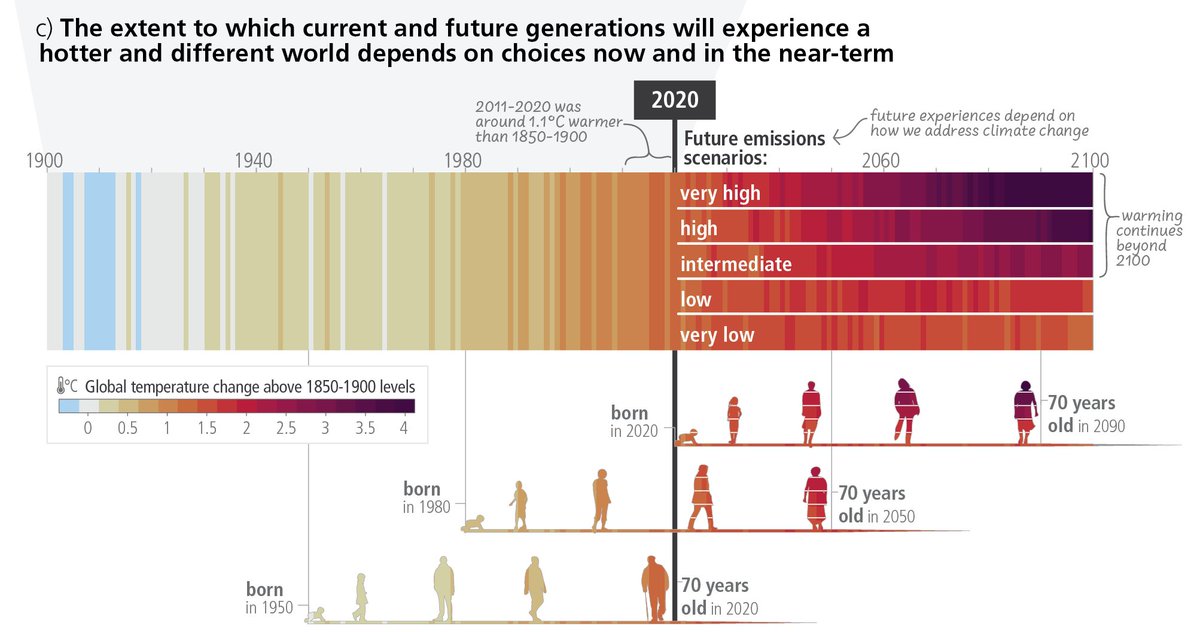
 Within the formal IPCC process there are (at least) two other relevant figures from the WGI report.
Within the formal IPCC process there are (at least) two other relevant figures from the WGI report.
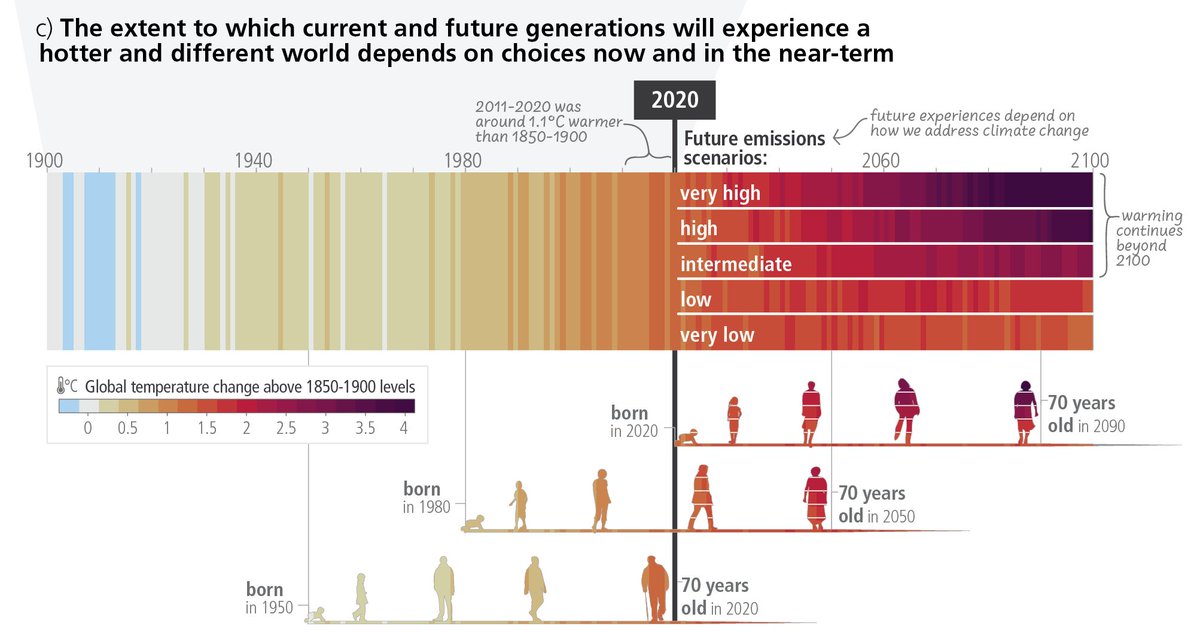
 And, to everyone who thought the 'warming stripes' were just a gimmick, here they are used in the IPCC Synthesis Report Summary for Policymakers. They are an effective communication tool to start the critical climate conversations we all need to have.
And, to everyone who thought the 'warming stripes' were just a gimmick, here they are used in the IPCC Synthesis Report Summary for Policymakers. They are an effective communication tool to start the critical climate conversations we all need to have. 
https://twitter.com/ed_hawkins/status/1613567967781855232For those who want numbers and a timeline to go along with the stripes...


 "The data from 2022 is stark, however you look at it. Whether you view the raw figures, or look at the data as another red line added to the climate stripes, the message is clear. Excess heat is building up across the planet at a rate unprecedented in the history of humanity."
"The data from 2022 is stark, however you look at it. Whether you view the raw figures, or look at the data as another red line added to the climate stripes, the message is clear. Excess heat is building up across the planet at a rate unprecedented in the history of humanity."

 The sleeve colours represent the change in annual temperature in Reading, with one stripe per year. Red for hotter years.
The sleeve colours represent the change in annual temperature in Reading, with one stripe per year. Red for hotter years.

 At London Fashion Week, @HouseOfTammam put on a catwalk show with dresses, accessories and a cape with the stripes as a theme, reaching a new audience and winning awards for sustainability engagement.
At London Fashion Week, @HouseOfTammam put on a catwalk show with dresses, accessories and a cape with the stripes as a theme, reaching a new audience and winning awards for sustainability engagement. 

 But, taking a global view is important. Variations in the weather mean that locally some years are hotter & some cooler.
But, taking a global view is important. Variations in the weather mean that locally some years are hotter & some cooler.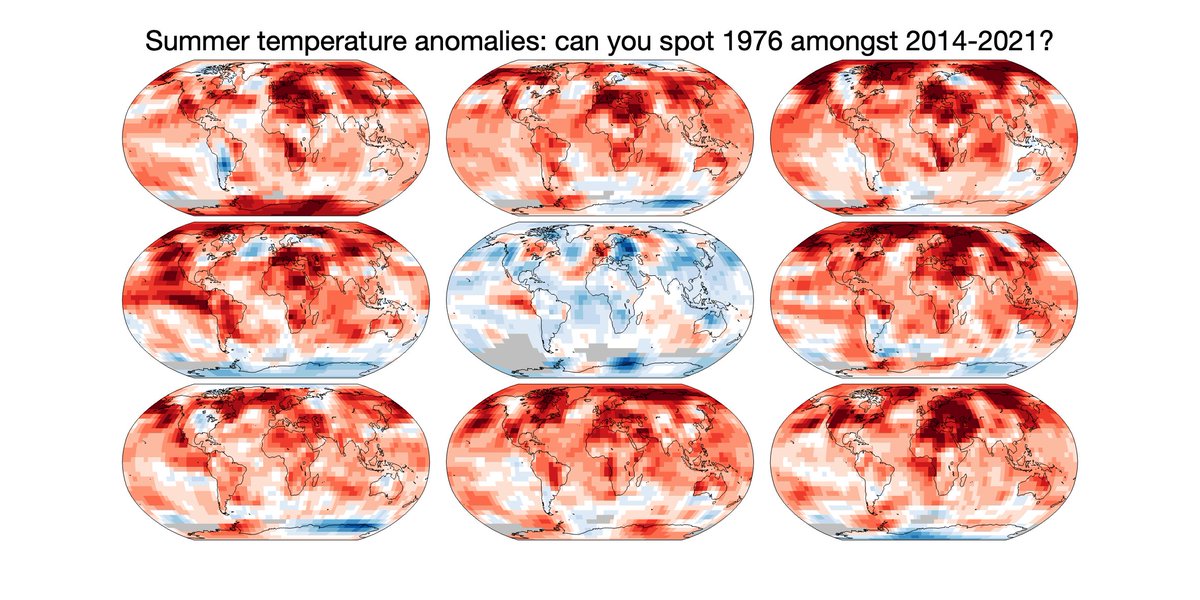

https://twitter.com/GretaThunberg/status/1529888726054318095The graphic used for this book continues the stripes backwards in time on the spine & back cover. For the period before 1850, information from 'paleo' sources are used, i.e. data from tree rings, corals etc. Because of the dimensions of the book the back cover goes back to 1630s.
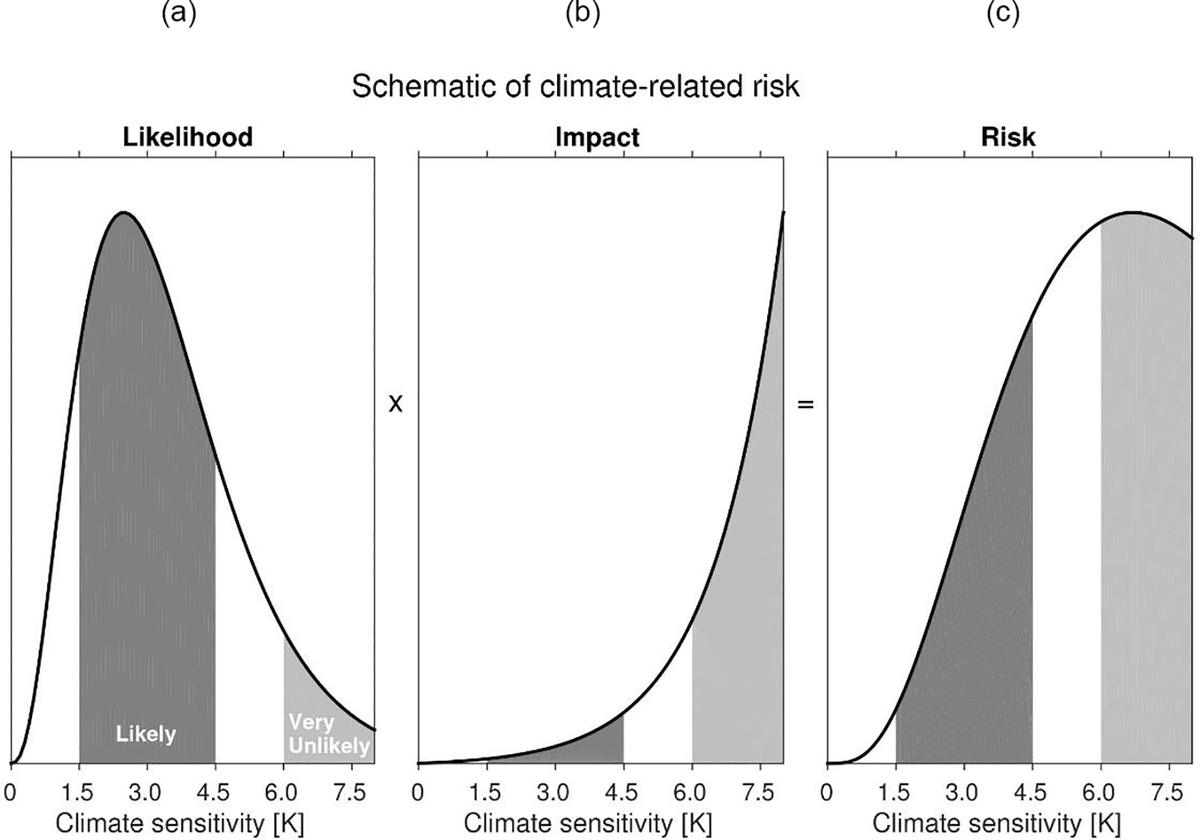


 2/ Climate variability. Short term fluctuations in the climate can temporarily obscure or enhance longer term trends. The size of the fluctuations depends on the variable of interest and spatial scale.
2/ Climate variability. Short term fluctuations in the climate can temporarily obscure or enhance longer term trends. The size of the fluctuations depends on the variable of interest and spatial scale. 



 Today is #ShowYourStripes day, when people around the world share how the climate is changing where they live. These graphics start conversations about our changing climate and what we can do about it.
Today is #ShowYourStripes day, when people around the world share how the climate is changing where they live. These graphics start conversations about our changing climate and what we can do about it.

 Thanks to @metoffice archives, these sheets were scanned & made openly available, but how could the observations be extracted?
Thanks to @metoffice archives, these sheets were scanned & made openly available, but how could the observations be extracted?
 For those still replying ‘it’s been warmer before’, please rethink. (1) Yes, we know this, because of climate scientists. (2) It doesn’t mean what you think it means.
For those still replying ‘it’s been warmer before’, please rethink. (1) Yes, we know this, because of climate scientists. (2) It doesn’t mean what you think it means. https://twitter.com/ed_hawkins/status/1120647542918787078
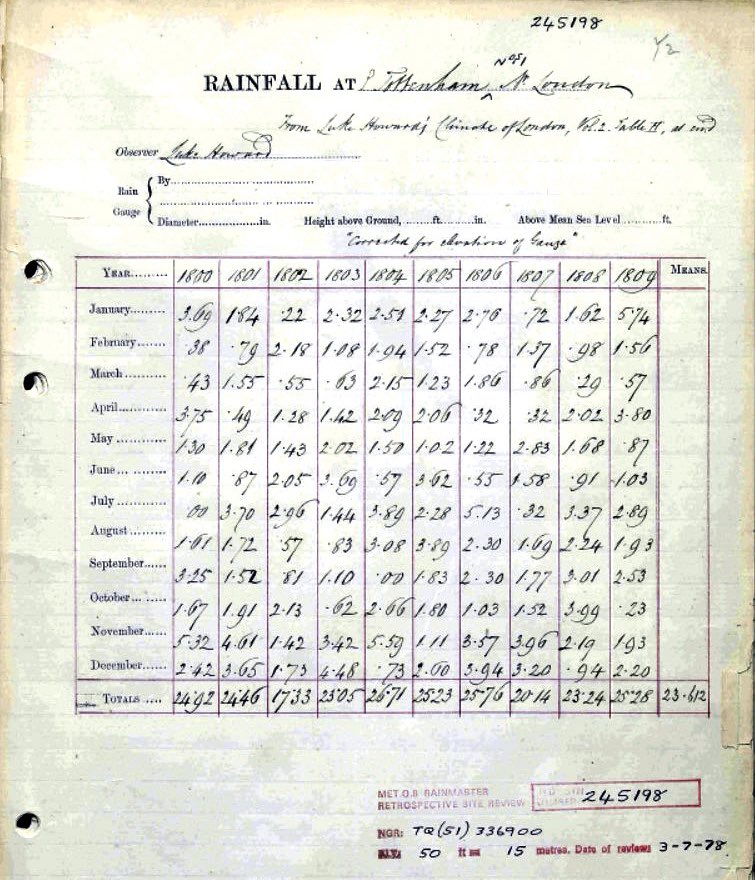
 5 million observations rescued so far for the 1870s to 1950s. #RainfallRescue
5 million observations rescued so far for the 1870s to 1950s. #RainfallRescue 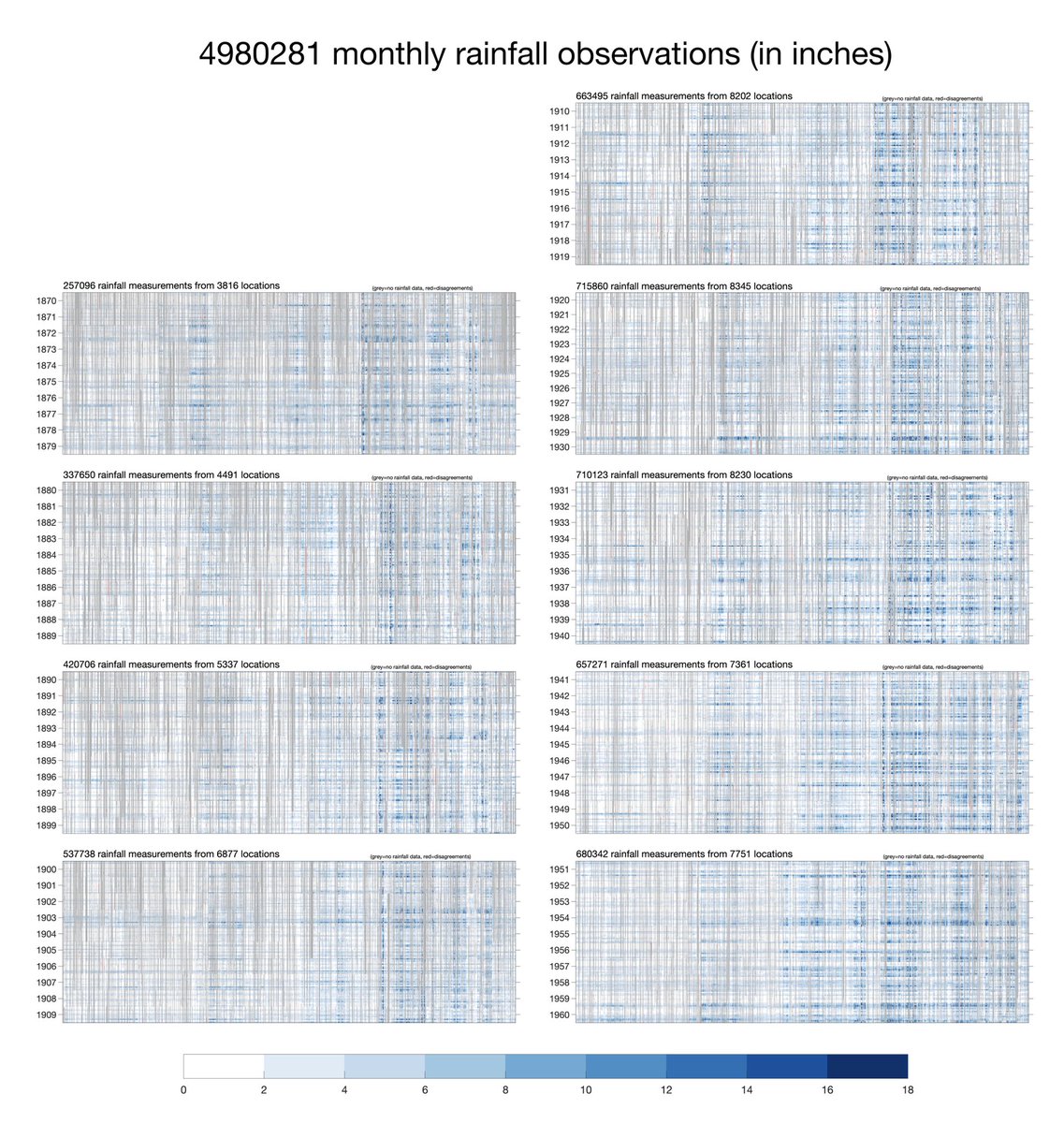
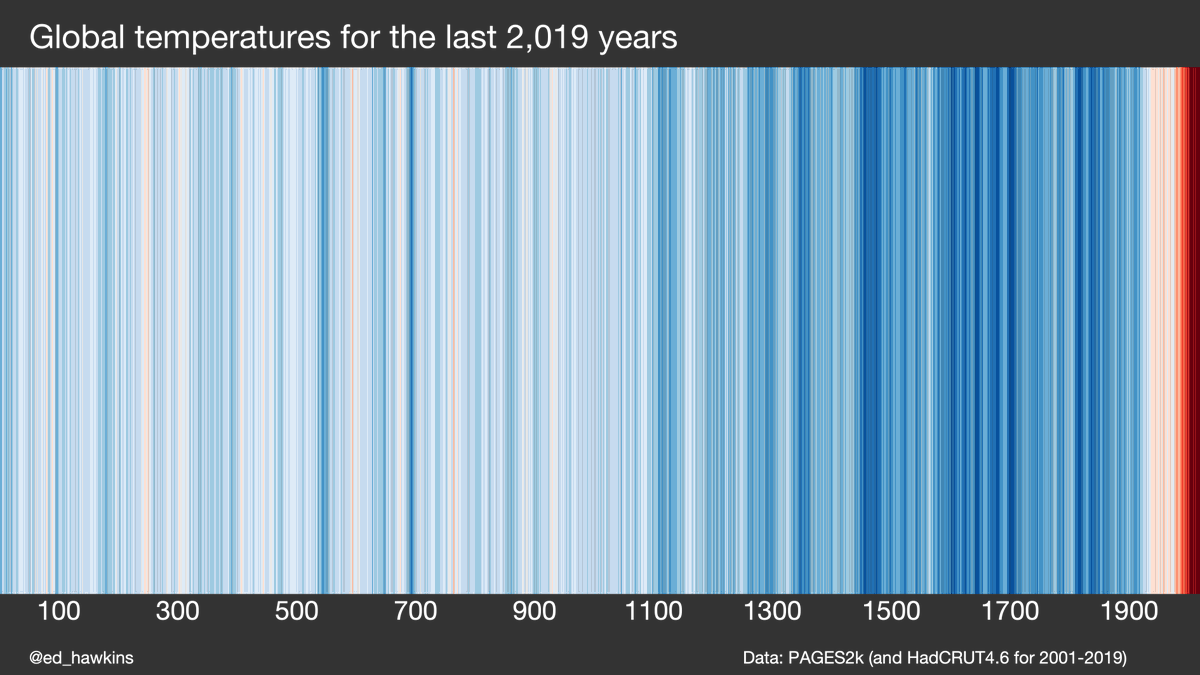
https://twitter.com/ed_hawkins/status/1217476539664814080?s=20Earth's climate has changed before for reasons nothing to do with human activity. Changes in the position of the continents, the sun's output, the number of volcanic eruptions, and the Earth's orbit have all influenced our planet's climate. Climate scientists study these reasons.
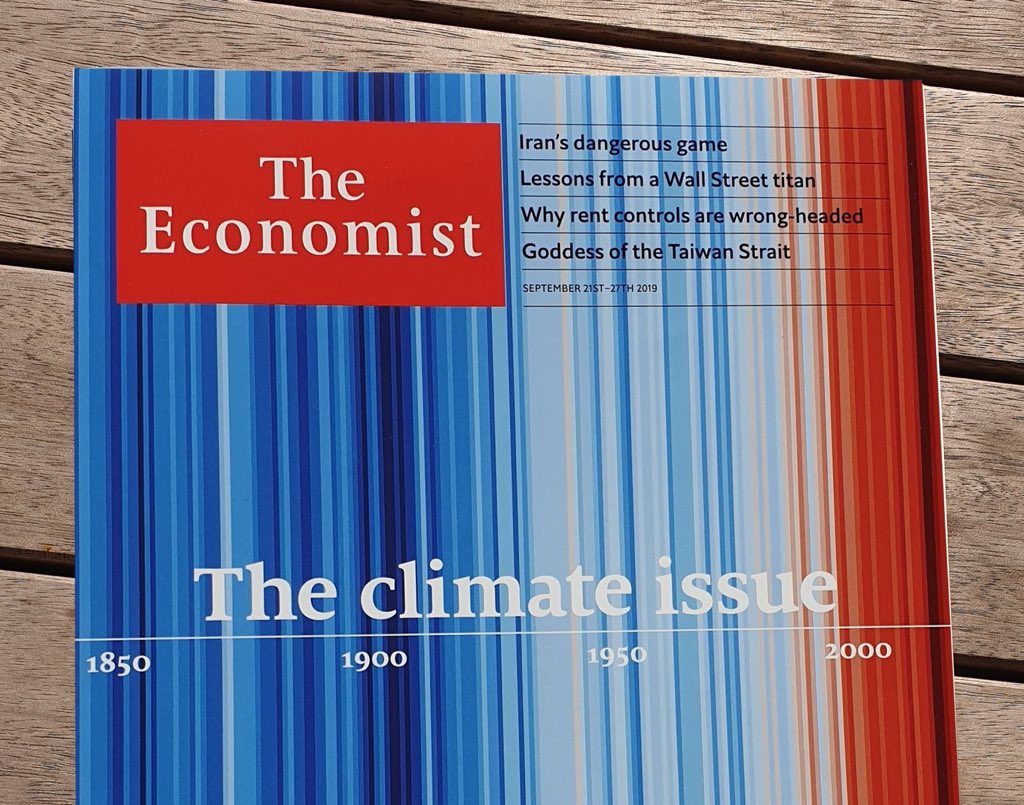

 The @guardian have also decorated their website homepage with the Warming Stripes and a photo of @GretaThunberg for the #climatestrike: theguardian.com/uk
The @guardian have also decorated their website homepage with the Warming Stripes and a photo of @GretaThunberg for the #climatestrike: theguardian.com/uk 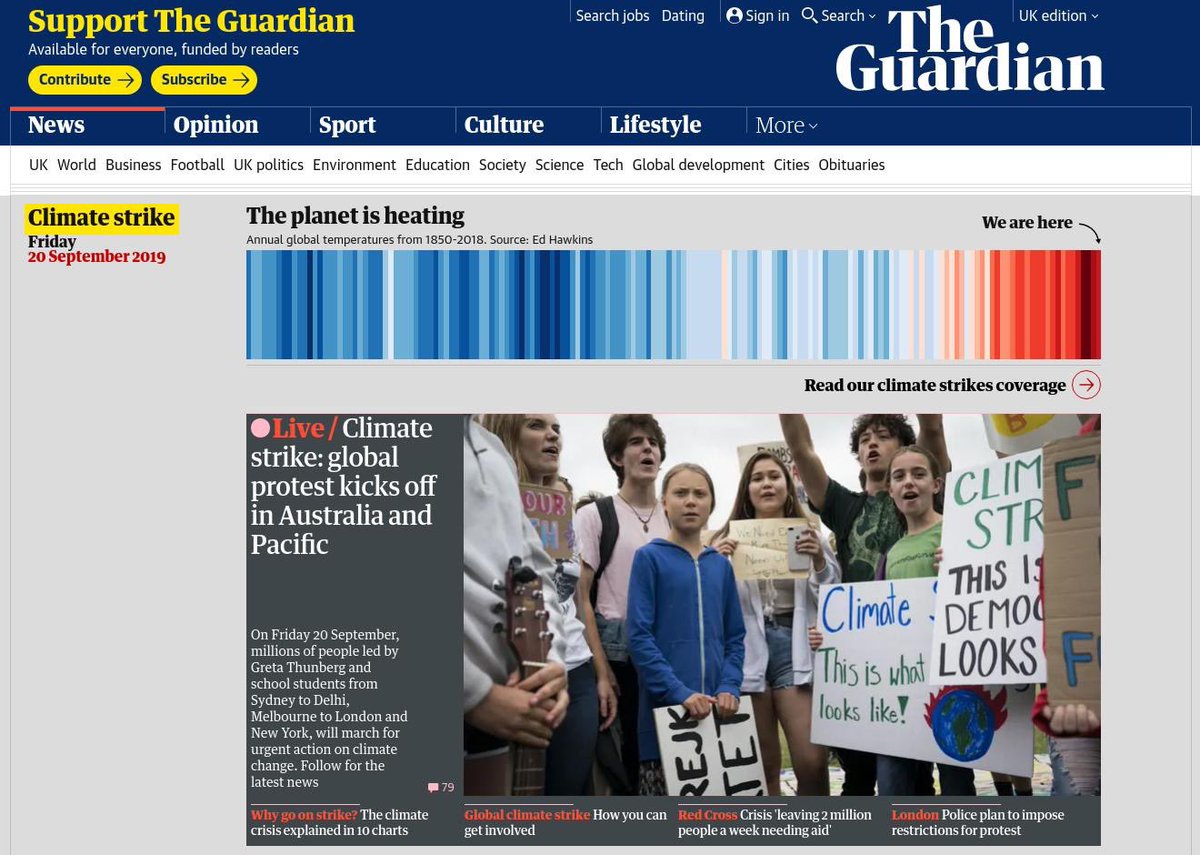
https://twitter.com/DavidTCDavies/status/1118251767626719232Since the 1830s scientists have known that the Earth's climate changes without any human influence, e.g. ice ages. Variations in the Earth's orbit, the location of the continents, the energy given off by the sun & the magnitude of volcanic eruptions can all affect the climate.